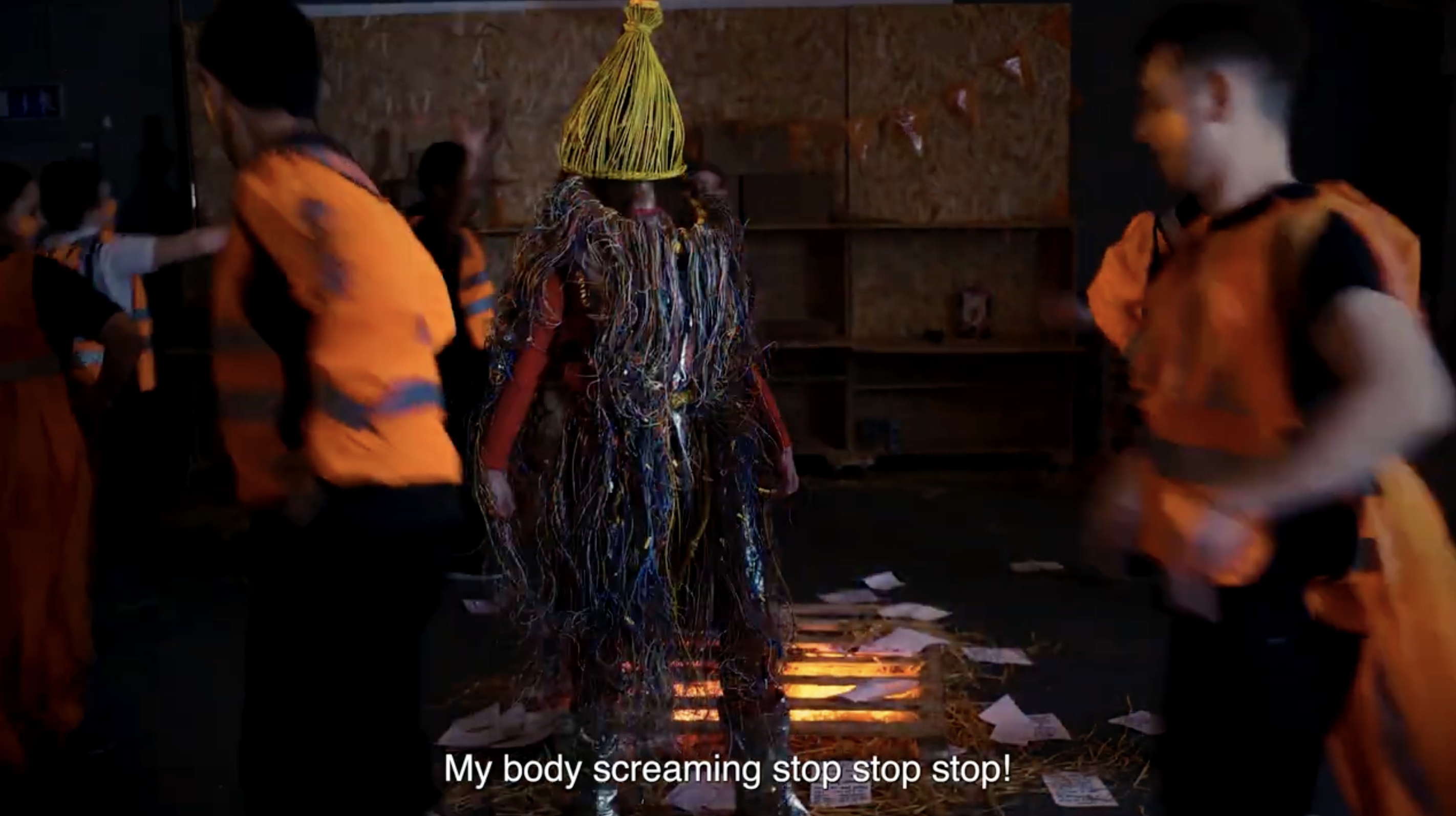I used this technique in Autohoodening: The Rise of Captain Swing, a work informed by research on the working conditions at the international company Amazon, particularly during the COVID-19 pandemic. Part of the research for this piece included:
- Interviews with GMB Union representatives at the Rugeley and Coventry fulfilment centres.
- Quotes from a GMB Union worker survey at the Rugeley centre.
- Research on inequality from different online resources of workers and union voices, including the website The FACE of Amazon[35].
- Alan Selby’s testimony after working undercover at Tilbury’s Amazon warehouse[36].
This material has been analysed and distilled collectively[37] to inform elements such as the structure of the work[38], and has been used throughout the piece as text to be spoken or sung[39]. Quotes such as “workers treated as slave robots, no respect, no rights”[40] or “we are not even treated as robots, we are treated as part of the data stream”[41] are taken directly from the data.
Other quotes have been reworked to be presented in rhyming couplets, a writing style derived from the hoodening songs[42] that informs the libretto. This is the case with quotes such as:
These two quotes resulted, for example, in the line used in the Poor Old Associate song in the score:
Sore feet, back, hands, my head aches
Scores of sad people in every break
Stressful not helpful, hard work
Sore feet, back, my head aches[45].
The scene that features more prominently quotes from workers at Amazon integrated into the composition is the resurrection and coronation of Captain Swing. The quotes are presented in two manners: reworked and integrated into the lyrics of the hoodening song Poor Old Associate[46] and spoken in a ritualistic manner to provoke the resurrection of Captain Swing (Example #11).
Example #11
Quotes from workers at Amazon set as text in the composition. The scene features a version in D major of the song Poor Old Associate [00:00:50] and the reading of several quotes from workers at Amazon [00:01:08].

